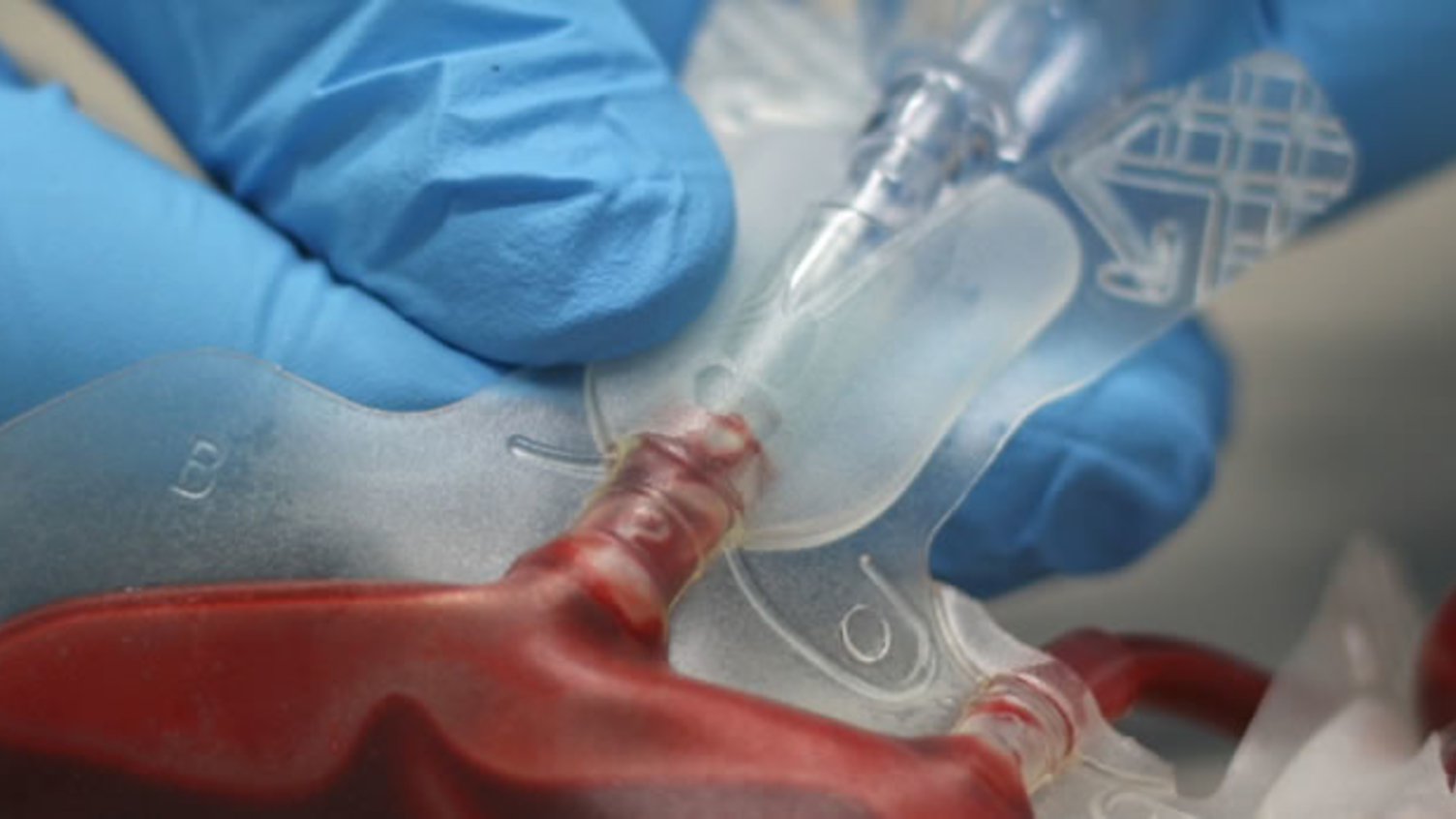Blood transfusion and blood donation

About this PSP
This PSP worked with patients, donors, relatives and clinicians to identify and prioritise the most pressing unanswered questions about the therapeutic use of red blood cells, platelets and plasma in patients of any age and in any hospital department. It did this across the whole clinical pathway from blood donation through to recovery from transfusion, including treatment strategies that provide alternatives to using blood.
The PSP was funded by NHS Blood and Transplant, in collaboration with the National Institute for Health and Care Research (NIHR) Oxford Biomedical Research Centre, and began its work in October 2015.
The first survey from the PSP asked anyone with experience of blood transfusion or blood donation to submit their comments and questions, to help influence the research that is done in this area in future. A list of unanswered questions was drawn up from the responses to the survey.
A second survey asked patients, donors, relatives and clinicians to vote on which of the unanswered questions were most important in their experience. In a final workshop in February 2018 patients, donors, relatives and clinicians discussed the 30 questions that people had voted as most important and agreed a final order of priority for them, focusing specifically on what the Top 10 most important future research questions were.
The Blood Transfusion and Blood Donation PSP Top 10 was published in March 2018.
Impact of Top 10s
Top 10 priorities
- What would encourage more people (especially black and ethnic minority groups or people with a rare blood type) to donate blood?
- How can health professionals be discouraged from using blood inappropriately?
- How can the wastage of donor blood be minimised?
- What is the optimal type and combination of blood products [red blood cells, platelets, frozen plasma] for adult patients* with a major haemorrhage that requires a transfusion of 4 or more units of blood? (*Aged over 16 years old).
- How can patients, relatives and carers be empowered to have greater say about their choices in relation to blood transfusion and its alternatives?
- How can patients with anaemia be identified and treated in a timely manner so that the need for transfusion is avoided?
- What are the best drug alternatives to blood transfusion to reduce and prevent bleeding?
- How can the blood transfusion process be delivered more safely and in a timely manner in hospitals?
- What medical conditions make it unsafe for a person to be a blood donor?
- What are the most effective ways to educate the general public about the process and purpose of blood donation?
The following questions were also discussed and put in order of priority at the workshop:
- What is the psychological impact of blood transfusion on the patient?
- How can donation sessions be organised to make them easier and more convenient for blood donors?
- Which patient groups would benefit most from artificial blood products?
- Are drugs a cost effective alternative to blood transfusion for the management of anaemia?
- How can any negative long term effects of blood transfusion be prevented?
- What characteristics identify patients who would benefit from a blood transfusion?
- Does the use of oral or intravenous iron for patients with iron deficiency anaemia reduce the need for transfusions?
- What is the best administrative process for hospital blood transfusion to keep patients safe and minimise delay?
- At what haemoglobin level [blood count] should a patient who has experienced a haematological (blood or bone marrow) disorder receive a blood transfusion?
- Do patients and their relatives and/or carers receive enough information to help them understand about blood transfusion?
- What is the impact of iron deficiency on blood donors and how may its impact be prevented?
- What is the optimal dose of a red blood cell transfusion for maximum patient benefit?
- How cost effective is cell salvage for the avoidance of transfusion of donor blood during major surgery?
- At what haemoglobin level [blood count] should a non-surgical, general medical patient receive a blood transfusion?
- How can the immediate side effects of receiving a blood transfusion be reduced?
- At what haemoglobin level [blood count] should a patient with cancer receive a blood transfusion?
- If the blood taken from a donor shows a result that might impact their future health, how should this best be communicated to the donor?
- How should patients who refuse blood transfusion be managed?
- Why aren't previous recipients of a blood product transfusion allowed to be blood donors?
Document downloads
For full details of all of the questions identified by this PSP, please see the document below.